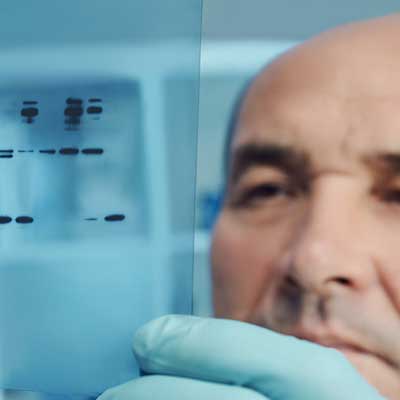Dr. John Oertle of Envita Medical Centers Dispels Myths about Prostate Cancer on the Mike Schikman Show

With new studies projecting an increase in prostate cancer deaths, which is currently at 1 in every 15 minutes in the United States alone, there is an urgent need for targeted interventions and screenings. “Many times, people think that this is a cancer that many people will get, but nobody will die from, and that's actually a misnomer,” said Dr. John Oertle, Chief Medical Officer, Envita Medical Centers, a Center of Excellence for precision integrative oncology. Speaking to Mike Schikman on Prostate Cancer Awareness Month, Dr. Oertle explained the need for detailed genomic analysis to understand the aggressiveness of the disease.
With new studies projecting an increase in prostate cancer deaths, which is currently at 1 in every 15 minutes in the United States alone, there is an urgent need for targeted interventions and screenings. “Many times, people think that this is a cancer that many people will get, but nobody will die from, and that's actually a misnomer,” said Dr. John Oertle, Chief Medical Officer, Envita Medical Centers, a Center of Excellence for precision integrative oncology. Speaking to Mike Schikman on Prostate Cancer Awareness Month, Dr. Oertle explained the need for detailed genomic analysis to understand the aggressiveness of the disease.
In-depth insight into the root causative factors of each patient's disease has been crucial for Dr. Oertle and his team at Envita to help many late-stage prostate cancer patients, who were left with limited options at other noted cancer treatment facilities in the country. Their personalized precision targeted oncology approach, based on detailed genomic analysis, has the potential of being a gamechanger in cancer care. “We do a full genetic analysis, looking at all the various reasons why that cancer existed, how's it growing, how's it developing and increasing, to be able to see how do we best treat it,” added Dr. Oertle.
“Nobody should be passing away of prostate cancer in my opinion,” said Dr. Oertle, while emphasizing the need for regular screening and early detection. He explained that men should get screened for prostate cancer after the age of 40, with a physical exam and a blood test. “Once you have a diagnosis make sure you are running a genetic analysis to be able to make sure you are knowing how to treat it with less invasive options,” added Dr. Oertle.
To know more about proprietary treatments for prostate cancer, its screening and prevention strategies tune into this podcast.















